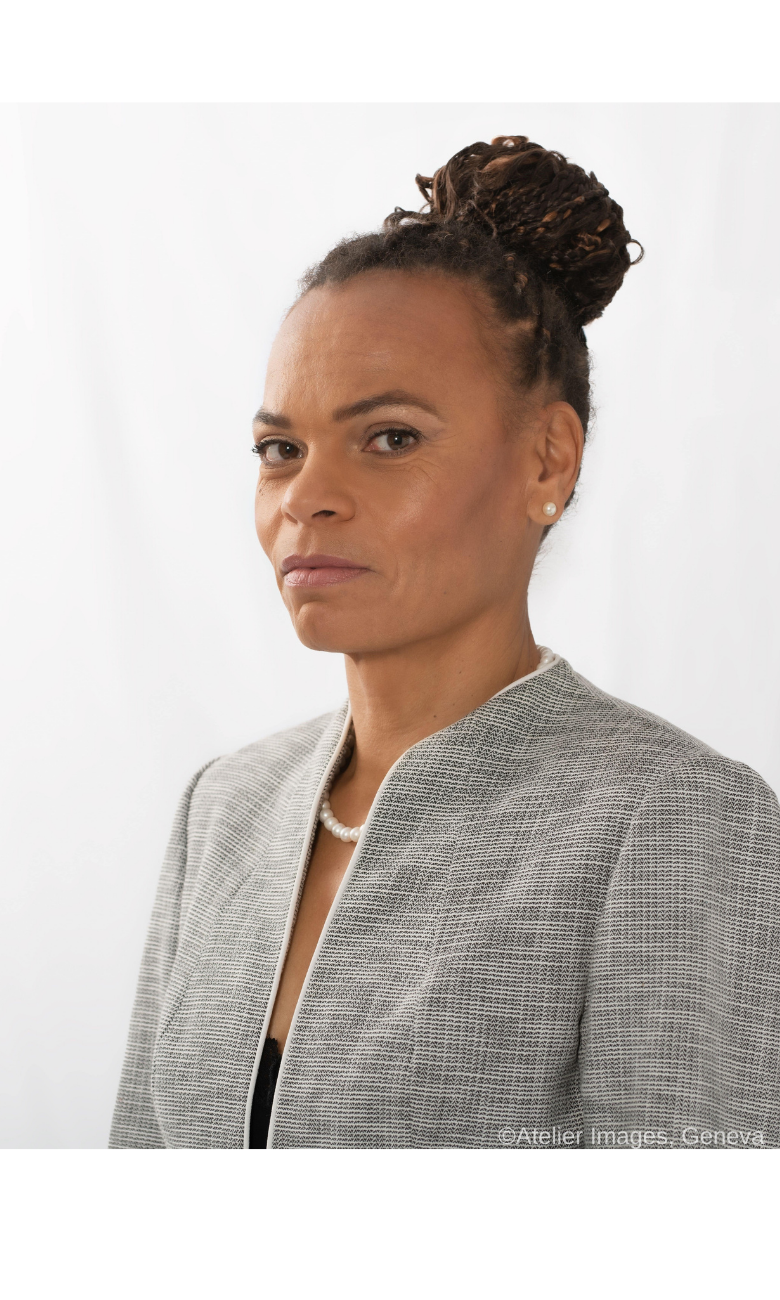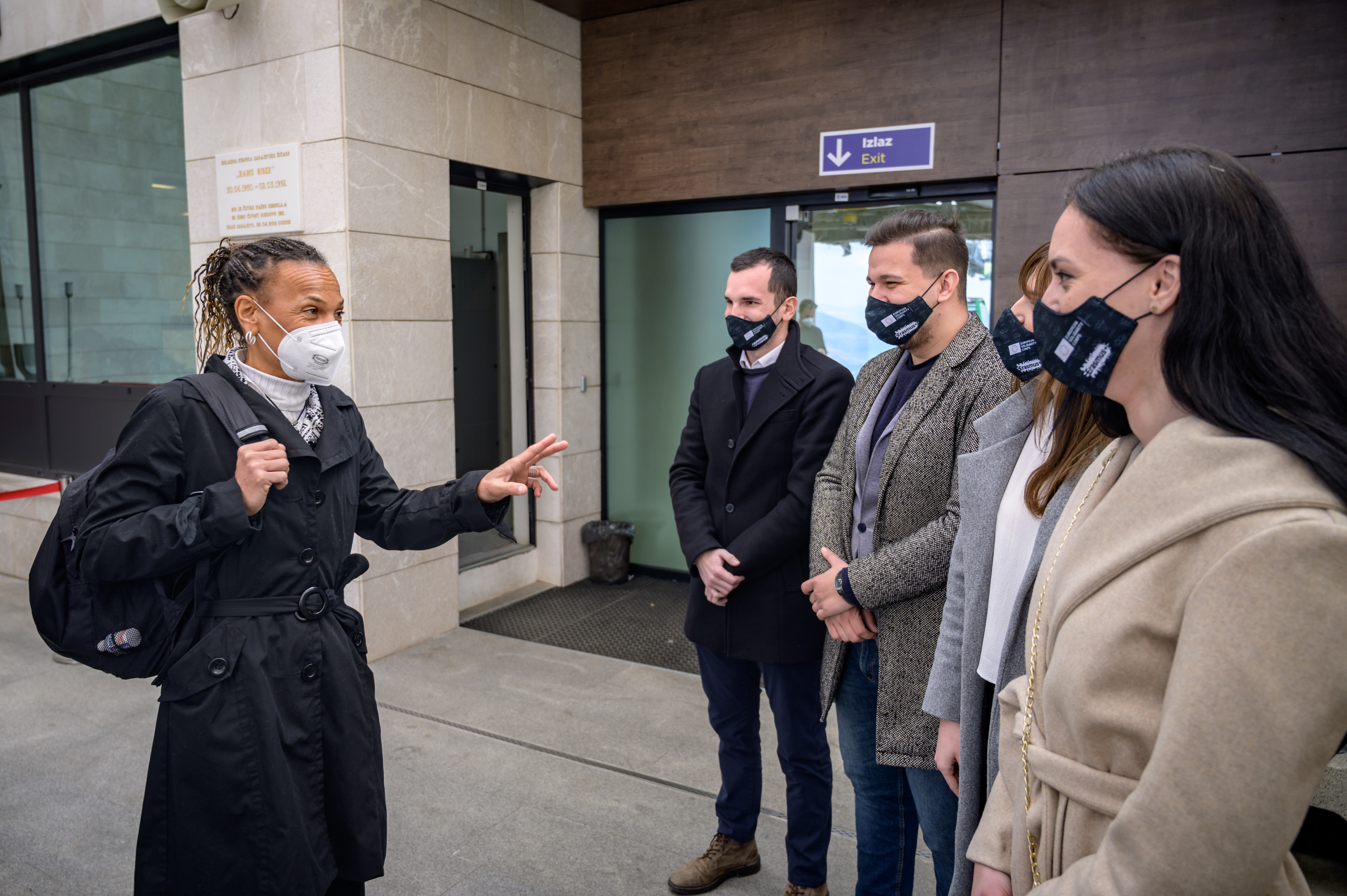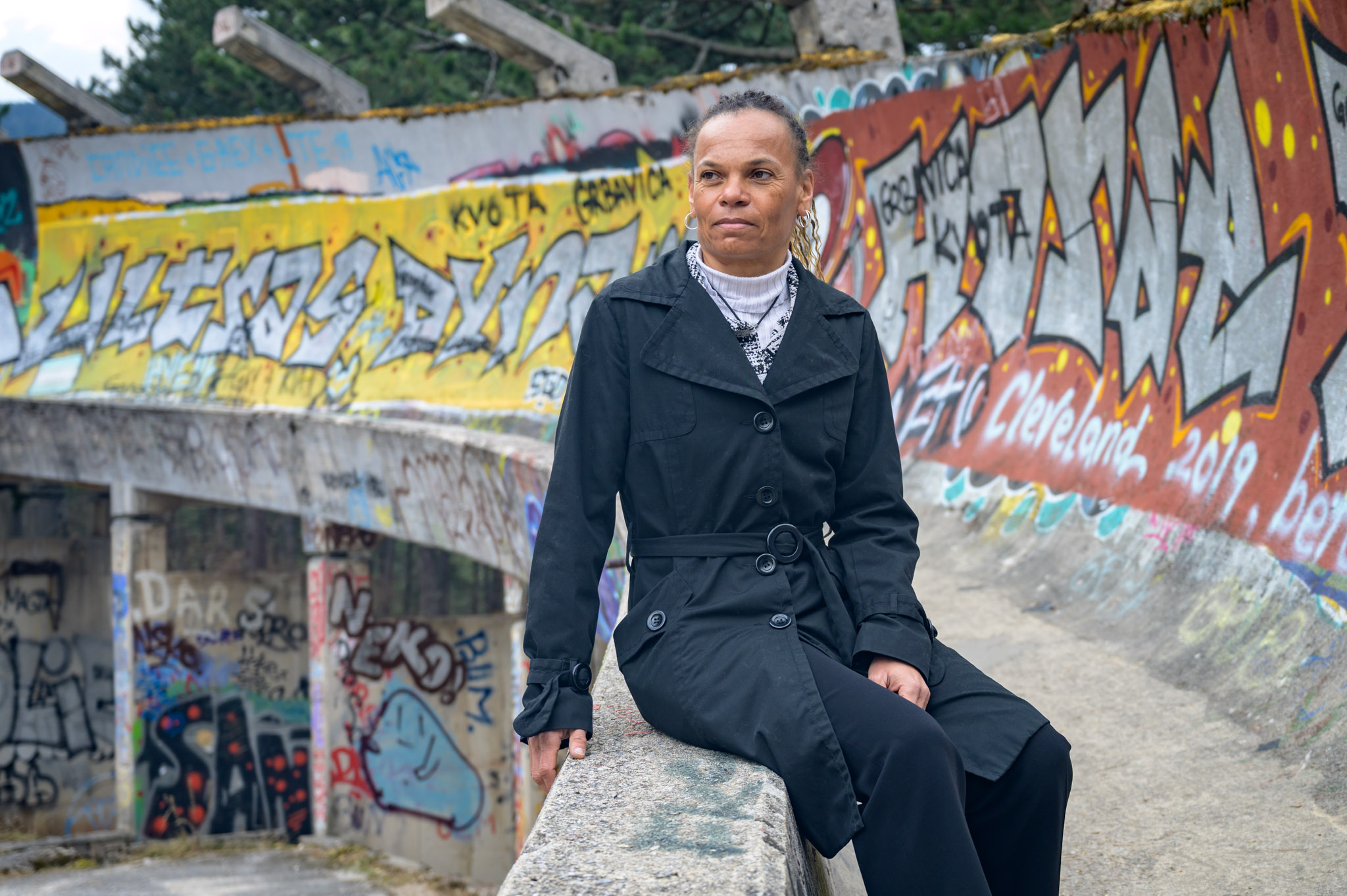A woman who observes, listens and forges ahead
Portrait of Patricia Danzi, head of the Swiss Agency for Development and Cooperation. When Swiss women won the right to vote at federal level in February 1971, Danzi was just two years old. "I was too young to realise what was going on, but my grandmother gained something tangible that day. It was like being liberated – finally, her voice counted. "
Danzi, who became head of the Swiss Agency for Development and Cooperation (SDC) in May 2020, looks back at her grandmother's emancipation – proud of having an opinion to express and be counted. She also remembers her grandfather who tried, initially, to tell her how to vote. But he wasn't very successful. "He soon realised it was a waste of time. Especially since my mother, a 23-year-old teacher at the time, had also been following the women's liberation movement that started in May 1968."

Strong, committed women
Danzi has been immersed in a culture of strong female role models since childhood, from her grandmother in central Switzerland to the women's council in the Nigerian city where her father comes from.
Southern Nigeria is traditionally known for its strong women. There, the women were able to vote before my Swiss grandmother was!
The region has also produced feminist writer and activist Chimamanda Ngozi Adichie, and the new director-general of the WTO, Ngozi Okonjo-Iweala. "The women there exert real power through their council; they discuss their concerns among themselves and then negotiate with the men. They have developed a strong, participatory culture to defend their status and values" explains Danzi, who joined the council herself around 15 years ago and now serves as an honorary member from abroad.
On the importance of participating, Danzi remembers the first time she received her voting papers in Switzerland. Inside the envelope she found her voting slip and a letter from the commune detailing all the rights and obligations her age of majority – 20 years back then – conferred on her. "I don't remember what the vote was about, but I do remember having this distinct feeling that I was becoming a full member of society. For me, it was an important rite of passage. I've always had this picture in my mind of when my grandmother opened her voting papers for the first time."
A family, a career and the right set-up
As for the family she went on to start herself, Danzi believes that time will mainly tell how equality will impact on her two sons, now young adults. "Children are taught that girls can do everything boys can, that there's no difference. That's really important. But unfortunately, this changes when people reach 20 or 30 years of age. Young women have different issues to consider from young men when it comes to the question of having children. If a woman wants to start a family, her career will develop at a different pace, at least for the first few years." Danzi has gone through this herself. "Back when I was juggling work and family, there were days I worked 150%. I felt like I had to excel at everything I did and, on top of it all, never complain because I was the one who had chosen this way of life. There are a great number of working women who put too much pressure on themselves. "

Danzi firmly believes that it is possible to have both a family and a career, but stresses two key aspects: First, women have to stop putting so much pressure on themselves. Not everything has to be perfect all the time. Second, and most important of all, there needs to be a reconfiguration in society. "In this sense, the COVID-19 pandemic has given us an opportunity that shouldn't be missed. It has opened up possibilities for flexible working which could free us from the pressure to be present anywhere and at any time. Women are excellent organisers, so we need to create more flexible spaces for the ones who want to manage their own schedules and advance their careers at their own pace." This means their own day-to-day rhythm and that of their family, partner and child(ren). "For me, the development of IT tools enabling us to work from anywhere has been revolutionary. Now you don't have to stress about printing documents in the office at the end of the day, only for the printer to crash a few minutes before the kids are about to leave school! "
The first...
That said, Danzi does not believe that being a woman has been a disadvantage in her career. In fact, in the field, women humanitarian actors and negotiators often have easier access to the local people – women, families, detainees, or even the military, who are usually less aggressive towards mother figures, a position that is respected in many cultures. "I was also lucky," Danzi acknowledges. "When I was applying for field missions and team leader positions, they were looking to hire women. And as a woman of colour, I was noticed very quickly. It was actually a double advantage at that time." An advantage, but also an immense responsibility – to be the first.
Being the first woman, and the first woman of colour, to hold a particular position wasn't a burden though. Actually, I felt – and still feel – the joy and expectations this creates, mainly for other people of colour working with me. I'm very serious about my work, and if I can help pave the way for others, then that's a success. I look forward to when it will no longer be an issue for a person like me to be where I am, and that it will be seen as normal.
Danzi is the first woman to head the SDC, and can't wait to get back to the field. So far, the pandemic and initial few months settling into her new position and reorganising the SDC in line with the new International Cooperation Strategy 2021–24 have kept Danzi away from actual projects. "I've learned the most from people in the field. I have met some extraordinary women – not victims but fighters, with an extraordinary capacity for innovation to help build peace. Women on the sidelines of conflicts are often very pragmatic. They are well aware of how senseless it is to fight, which drains resources, whereas a community's lifeline is its livestock." The pragmatic and committed approach to peace taken by women is reflected in the microcredit projects supported by the SDC and other donors. "Women entrepreneurs work very hard. If they are given start-up assistance, their potential to develop is impressive – especially because this support helps them to become independent. They are driven by much more than just economic development," explains Danzi. In fact for a long time, development aid was only aimed at men, cementing their traditional and patriarchal control. The tide has begun to turn in recent years however, and a lot of work has gone into networks that focus on gender. This approach has also been adopted by the SDC, as Danzi asserts.
These days, women are represented in almost all development programmes around the world; without them, progress would be much slower.

... but not the last
Indeed, the women's movement has been advancing steadily since 1971. There is still a long way to go on this path, initially paved by the suffragettes, and on which we nowadays come across such women of Danzi's calibre who observe, listen and forge ahead. And sometimes jump too. When Danzi competed in the Olympics, she chose the heptathlon as she was not allowed to enter the decathlon, a men-only discipline because pole vaulting was considered too physical for women. She did pole vault during training, however – because she wanted to, and because she had the strength and determination to do so. And because for Danzi, the bar can never be set too high.




